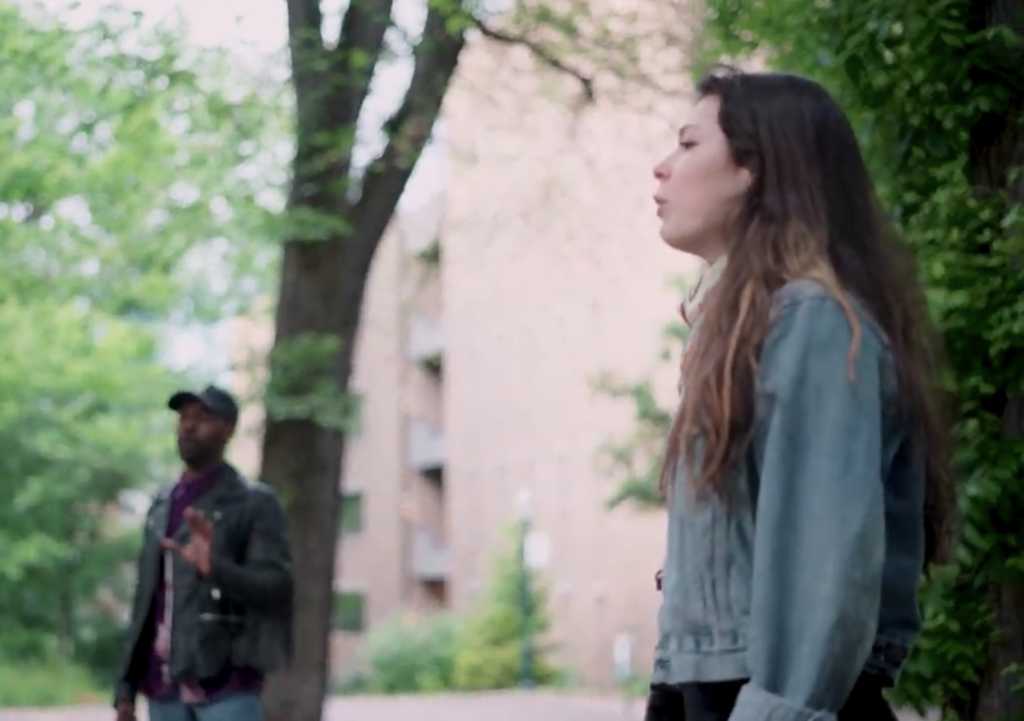Madisen Hallberg, a graduating senior at Portland State University, was singing the national anthem for her college’s virtual graduation ceremony when something unexpected happened.
Standing amongst the trees in the courtyard of Portland State — a place she hadn’t been to in months — Hallberg began singing “The Star-Spangled Banner” when Onry, a classically trained opera singer whose full name is Emmanuel Henreid, strolled by.
Initially reluctant to join in, Onry went with his gut: he asked Hallberg, a music major who studied jazz, if he could accompany her. This is what happened:
“As an African-American male walking the park blocks,” Onry told KGW-TV, “I didn’t see a white individual, or a woman, or any of these things. I just saw what felt like music.”
“I passed, and then I was like, ‘You know what, let’s just back up. Let’s just do it. Let’s just be brave. Just ask if she wants to sing together,’” he added.
Regardless of skin tone, Onry explained that the voice “is the same instrument with the same amount of love, joy, healing, and peace that comes along with that and the way that we use that gift is empowering and it washes over others. It changes their lives exponentially.”
Hallberg and Onry’s performance of “The Star-Spangled Banner” comes as some on the left are pushing for the national anthem, written by Frances Scott Key in 1814, replaced with “Imagine” by John Lennon, who described the song as “virtually the communist manifesto.”
“In an increasingly anti-racist era when problematic iconography — ranging from Aunt Jemima and Uncle Ben to even ‘The Dukes of Hazzard’ General Lee car and country band Lady Antebellum’s name — is being reassessed, revised, or retired, America’s national anthem, ‘The Star-Spangled Banner,’ seems to be striking the wrong note,” wrote a Yahoo journalist.



